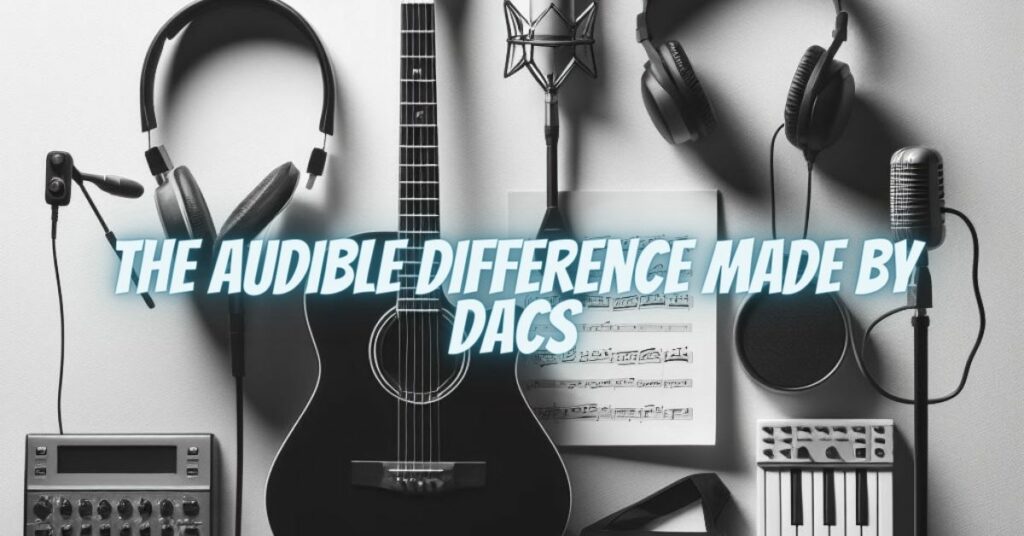Digital-to-Analog Converters (DACs) have become a common topic of discussion among audiophiles and music enthusiasts seeking to enhance their audio setups. These devices are designed to convert digital audio signals into analog signals for playback through speakers or headphones. However, the question that often arises is whether DACs truly make an audible difference in sound quality. In this article, we will explore the role of DACs in audio systems and their potential impact on audio quality.
Understanding the Role of a DAC
Before delving into the audible differences, it’s essential to understand the fundamental role of a DAC in audio systems:
A DAC, as the name suggests, performs the crucial function of converting digital audio signals into analog signals. In the digital world, audio is represented as a series of 0s and 1s, and a DAC transforms this binary code into electrical currents that can drive speakers or headphones. The quality of this conversion process can significantly affect audio quality.
Factors That Influence DAC Performance
Several factors contribute to the performance of a DAC, and these can determine whether or not it makes an audible difference:
- DAC Chip Quality: The quality of the DAC chip itself plays a vital role. High-end DAC chips are designed to provide more precise and accurate digital-to-analog conversion, resulting in cleaner and more detailed sound.
- Component Quality: The quality of components used in the DAC’s circuitry, such as resistors, capacitors, and operational amplifiers (op-amps), can impact audio quality. High-quality components can minimize distortion and interference.
- Implementation and Circuitry: The design and circuitry of the DAC unit matter. Manufacturers employ various design techniques, such as balanced circuitry and high-quality signal paths, to ensure the best audio performance.
- Sampling Rate and Bit Depth: The DAC’s ability to handle different sampling rates and bit depths can impact its performance. High-resolution audio files benefit from DACs that support these formats.
- Listening Environment and Equipment: The quality of the rest of your audio setup, including speakers, headphones, amplifiers, and the acoustic properties of your listening environment, can also affect how you perceive the sound of the DAC.
Do DACs Make an Audible Difference?
The answer to whether DACs make an audible difference largely depends on several factors:
- Listening Equipment: The quality of your listening equipment, such as your headphones, speakers, and amplifier, plays a significant role. High-end audio systems are more likely to reveal the subtle improvements offered by a high-quality DAC.
- Audio Source and File Quality: The type of audio source you use and the quality of the audio files can influence the extent to which a DAC makes an audible difference. High-resolution audio files, combined with a well-implemented DAC, can produce noticeable improvements.
- Listener Sensitivity: The ability to discern audio quality differences can vary from person to person. Some listeners may have a more sensitive ear and can perceive changes that others might not notice.
- Acoustic Environment: The acoustic properties of your listening environment can affect how you perceive audio quality. A well-treated listening room can reveal more of the subtle nuances provided by a high-quality DAC.
In conclusion, the audible difference made by a DAC can be subtle but is indeed present, especially when paired with high-quality audio equipment and well-recorded music. The quality of the DAC chip, components, implementation, and circuitry, combined with high-resolution audio files and a well-treated listening environment, can contribute to a clearer, more detailed, and immersive listening experience. While the impact may not be dramatic for all listeners, audiophiles and those who appreciate high-fidelity audio are more likely to benefit from the improvements offered by a well-designed and implemented DAC in their audio systems.


